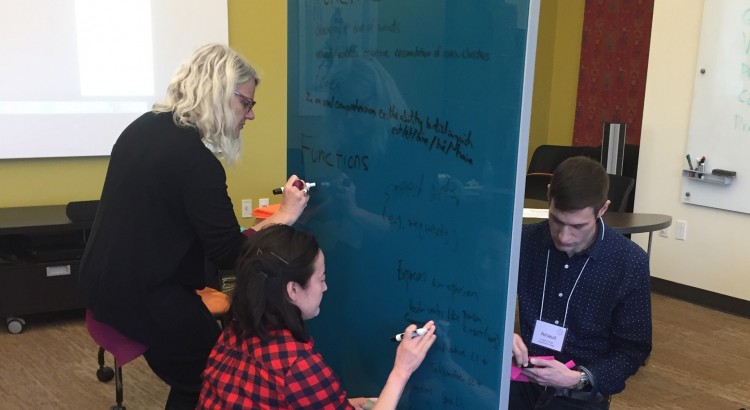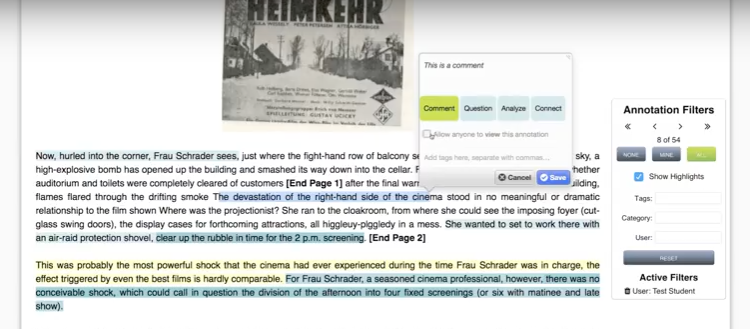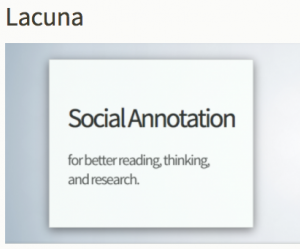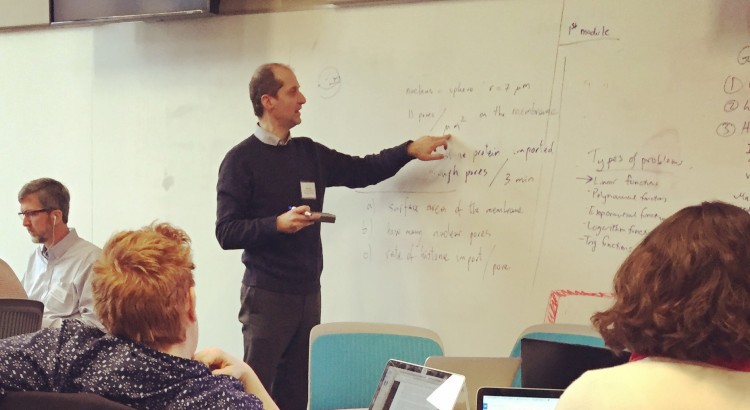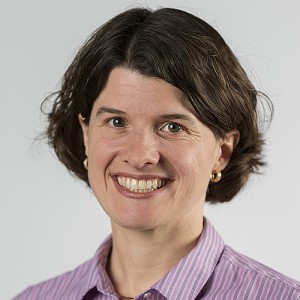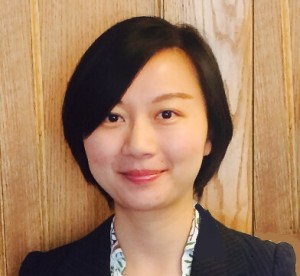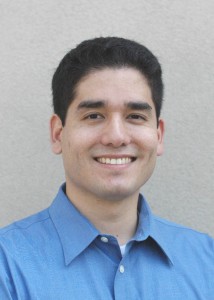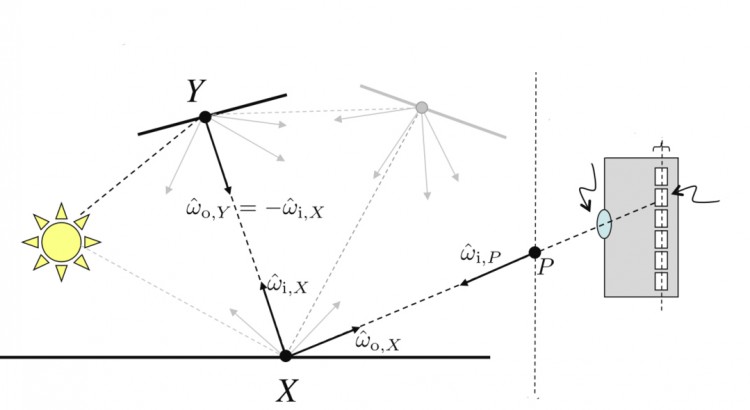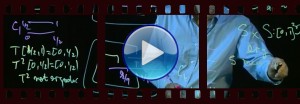UPDATE: Join Carly Born for her Dashboard Poster Presentation at ELI this January
As a sequel to last summer’s Hack-a-thon Toward a Collaborative Language Diagnostics and Refresher Framework at Swarthmore College, a dedicated group of language learning technologists and Carleton’s student “Data Squad” gathered this fall at Carleton College to work on platform requirements for a dashboard prototype. Led by Michael Jones and Carly Born, this two-day mini-hack-a-thon focused on solving technical pieces of the puzzle that will enable the flow of useful data from a language skills diagnostic test into a data-rich visual display.
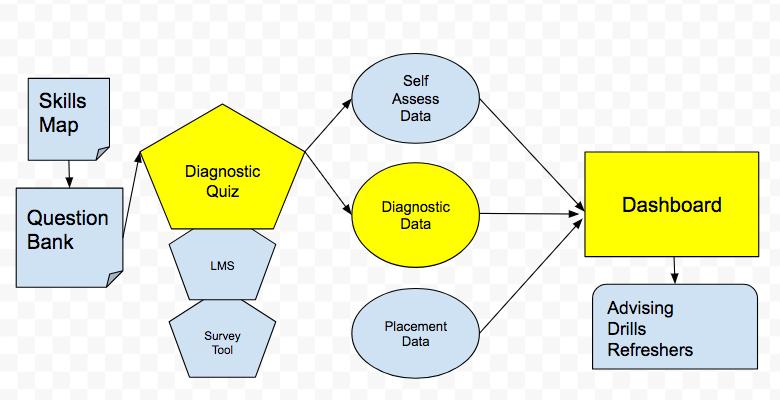
The dashboard is just one piece our faculty’s vision for the shared framework drafted at the meeting last May. Elements include a language skill map, a self-assessment survey, diagnostic/placement tests (question banks) and the dashboard that can help faculty visualize the data for better placement and advising.
Language Learning Skills Map / Top Level Categories:
- Grammar
- Comprehension
- Discourse
- Vocabulary
Diagnostic visualizations also may point to trends in language skills development within and across our liberal arts programs and language curricula. A user-friendly dashboard tool can ultimately help students gain feedback on their skill levels and close gaps as they traverse the liberal arts language sequence. Read More
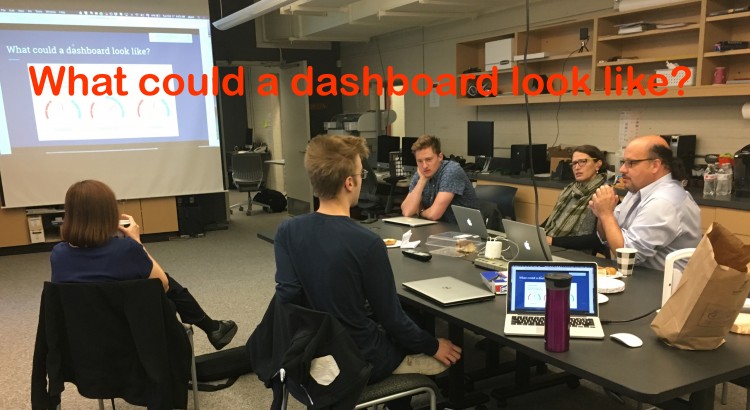
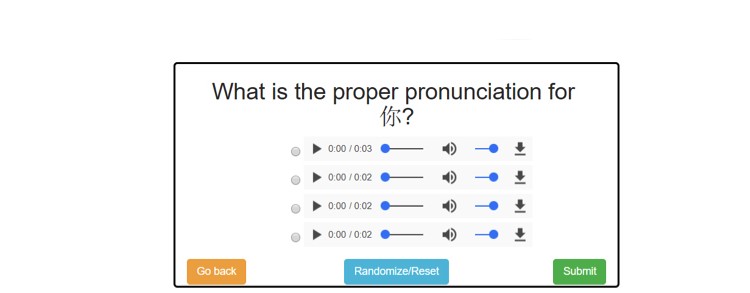



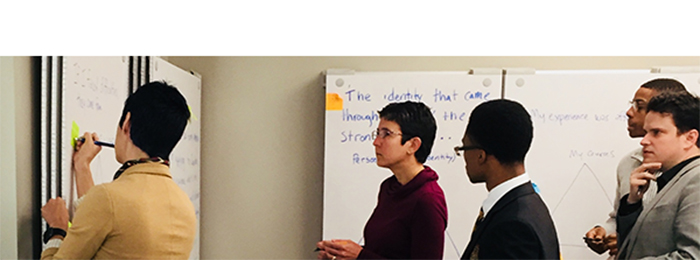
 When Bryn Mawr College first proposed experimenting with “blended learning in the liberal arts” back in 2011, we conceptualized it as a combination of “traditional,” face-to-face, liberal arts instruction and online tutorials that assessed and gave students feedback on learning. However, in the initial calls for proposals, it became quickly apparent that liberal arts college faculty were incorporating other types of digital technologies into their teaching, and doing so ways we had not anticipated. This presentation surveys the digitally enabled teaching approaches that have been included under the “blended learning” umbrella since 2011 and identifies “digital pedagogies” that might connect them.
When Bryn Mawr College first proposed experimenting with “blended learning in the liberal arts” back in 2011, we conceptualized it as a combination of “traditional,” face-to-face, liberal arts instruction and online tutorials that assessed and gave students feedback on learning. However, in the initial calls for proposals, it became quickly apparent that liberal arts college faculty were incorporating other types of digital technologies into their teaching, and doing so ways we had not anticipated. This presentation surveys the digitally enabled teaching approaches that have been included under the “blended learning” umbrella since 2011 and identifies “digital pedagogies” that might connect them.